Housing & Homelessness
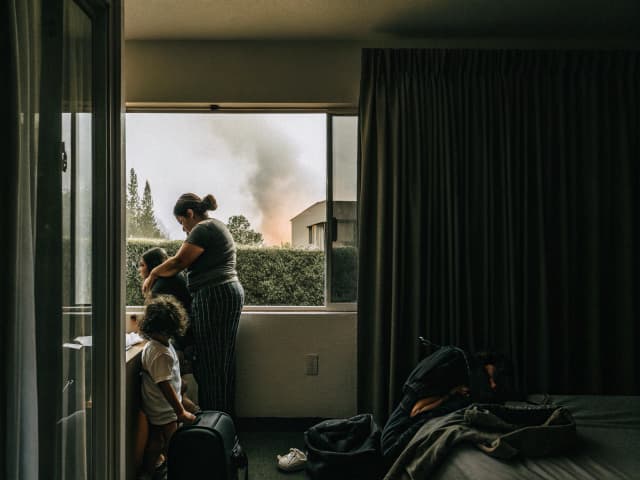
Motels, hotels, and short-term lodging: disasters.
Establishes a 270-day non-tenancy window for disaster lodging guests. Requires a 12-point notice at check-in if stay may exceed 30 days. Mandates a confirmation form for guests to acknowledge applicability of the disaster rule. Imposes a 72-hour vacate notice after 30 days with exceptions and is an urgency statute through January 1, 2031.
Motels, hotels, and short-term lodging: disasters.

Establishes a 270-day non-tenancy window for disaster lodging guests. Requires a 12-point notice at check-in if stay may exceed 30 days. Mandates a confirmation form for guests to acknowledge applicability of the disaster rule. Imposes a 72-hour vacate notice after 30 days with exceptions and is an urgency statute through January 1, 2031.

Housing development: transit-oriented development.
Establishes a transit-oriented development framework to boost housing near transit. Requires TOD housing with at least five units and tiered density and height rules. Allows agency TOD zoning on district land with public hearings and CEQA review. Imposes penalties from 2027 on high-resource area denials and requires local TOD plans by 2026.
Housing development: transit-oriented development.

Establishes a transit-oriented development framework to boost housing near transit. Requires TOD housing with at least five units and tiered density and height rules. Allows agency TOD zoning on district land with public hearings and CEQA review. Imposes penalties from 2027 on high-resource area denials and requires local TOD plans by 2026.

California Residential Private Permitting Review Act: residential building permits.
Establishes a private plan-check pathway to speed small residential permits. Allows private plan-check when complete review exceeds 30 days or is not determined in 30 days. Requires affidavits and reports, and city must act within 10 days or permit is deemed approved. Imposes applicant indemnification and immunity for discretionary acts, with a sunset in 2036.
California Residential Private Permitting Review Act: residential building permits.

Establishes a private plan-check pathway to speed small residential permits. Allows private plan-check when complete review exceeds 30 days or is not determined in 30 days. Requires affidavits and reports, and city must act within 10 days or permit is deemed approved. Imposes applicant indemnification and immunity for discretionary acts, with a sunset in 2036.

Land use: development project review.
Requires 45-day deadlines for responsible agencies on certain projects to speed reviews. Maintains a 180-day clock for lead‑agency approvals. Preserves 90-day timelines for CCC/BCDC and SWRCB/RWQCB cases. Deems related applications withdrawn after final lead disapproval and notes no state reimbursement.
Land use: development project review.

Requires 45-day deadlines for responsible agencies on certain projects to speed reviews. Maintains a 180-day clock for lead‑agency approvals. Preserves 90-day timelines for CCC/BCDC and SWRCB/RWQCB cases. Deems related applications withdrawn after final lead disapproval and notes no state reimbursement.

Planning and zoning: housing element: converted affordable housing units.
Expands housing element reporting with detailed income-tier and site data. Beginning 2027, adds replacement housing and demolition reporting requirements. Counts converted units toward RHNA up to 25% with 55-year covenants. HCD will post reports online and enforce corrections.
Planning and zoning: housing element: converted affordable housing units.

Expands housing element reporting with detailed income-tier and site data. Beginning 2027, adds replacement housing and demolition reporting requirements. Counts converted units toward RHNA up to 25% with 55-year covenants. HCD will post reports online and enforce corrections.
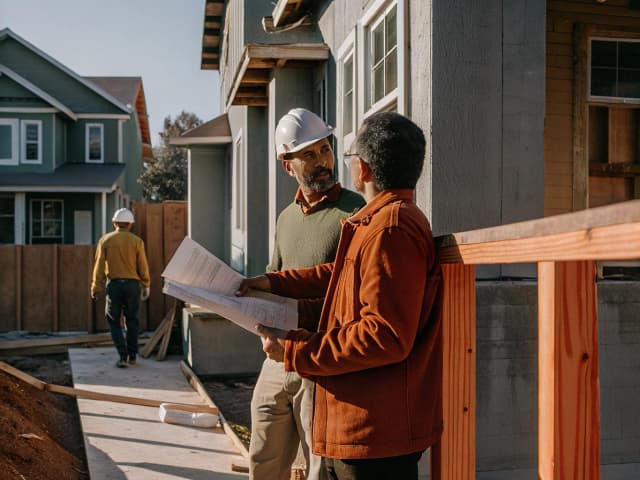
Planning and zoning: housing development projects: postentitlement phase permits: state agencies.
Expands postentitlement permits to include state agencies. Requires state agencies to publish information lists and sample applications by 2026. Sets timelines by project size and deems state permits approved if deadlines are missed. Enacts an urgency statute with immediate effect.
Planning and zoning: housing development projects: postentitlement phase permits: state agencies.

Expands postentitlement permits to include state agencies. Requires state agencies to publish information lists and sample applications by 2026. Sets timelines by project size and deems state permits approved if deadlines are missed. Enacts an urgency statute with immediate effect.

Abandoned recreational vehicles.
Authorizes Alameda and Los Angeles counties to dispose of RVs valued at $4,000 or less. Establishes a sunset for the program ending January 1, 2030. Requires 72-hour pre-removal notice, 48-hour owner notices, poststorage hearings, and cost rules. Imposes disposal to licensed dismantlers or scrap processors and annual reporting with DMV/DOJ.
Abandoned recreational vehicles.

Authorizes Alameda and Los Angeles counties to dispose of RVs valued at $4,000 or less. Establishes a sunset for the program ending January 1, 2030. Requires 72-hour pre-removal notice, 48-hour owner notices, poststorage hearings, and cost rules. Imposes disposal to licensed dismantlers or scrap processors and annual reporting with DMV/DOJ.
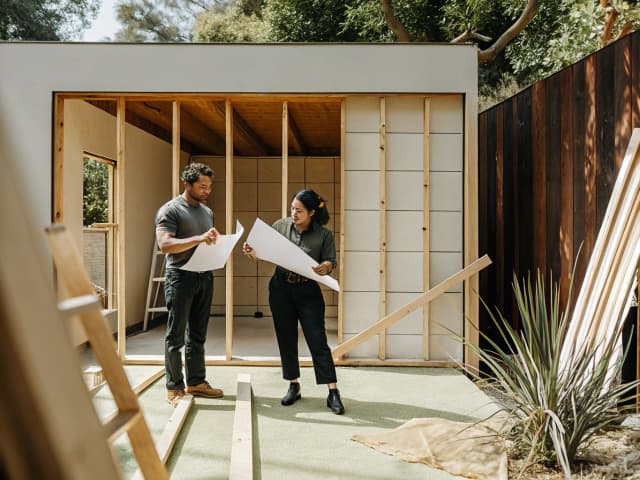
Land use: accessory dwelling units.
Establishes emergency CO for ADUs in disaster counties after Feb 1, 2025. Requires two conditions: the main dwelling is damaged and the ADU has permits and inspections. Excludes attached ADUs from the emergency occupancy exception. Accelerates ADU coastal permit decisions to 60 days with concurrent processing.
Land use: accessory dwelling units.

Establishes emergency CO for ADUs in disaster counties after Feb 1, 2025. Requires two conditions: the main dwelling is damaged and the ADU has permits and inspections. Excludes attached ADUs from the emergency occupancy exception. Accelerates ADU coastal permit decisions to 60 days with concurrent processing.

Housing Accountability Act: housing development projects.
Requires lodging be excluded from two-thirds residential mixed-use housing projects. Lodging may exist separately but is ineligible for housing incentives. Imposes fines of at least ten thousand per housing unit and preserves private enforcement. Operative effect depends on sequencing with AB 1308.
Housing Accountability Act: housing development projects.

Requires lodging be excluded from two-thirds residential mixed-use housing projects. Lodging may exist separately but is ineligible for housing incentives. Imposes fines of at least ten thousand per housing unit and preserves private enforcement. Operative effect depends on sequencing with AB 1308.

Planning and zoning: annual report: rehabilitated units.
Makes technical changes to update the reporting agency name in annual reports.
Planning and zoning: annual report: rehabilitated units.

Makes technical changes to update the reporting agency name in annual reports.

Unlawfully restrictive covenants: housing developments.
Expands unenforceability to redevelopments and reciprocal easements. Establishes five‑day forwarding to counsel and a fifteen‑day decision. Requires 60‑day notice to conservation easement holders before submitting the modification. Preserves protections and notes this is a state‑mandated local program with no reimbursement.
Unlawfully restrictive covenants: housing developments.

Expands unenforceability to redevelopments and reciprocal easements. Establishes five‑day forwarding to counsel and a fifteen‑day decision. Requires 60‑day notice to conservation easement holders before submitting the modification. Preserves protections and notes this is a state‑mandated local program with no reimbursement.

Adaptive reuse: streamlining: incentives.
Establishes adaptive reuse as a use by right with streamlined ministerial review. Sets rental affordability: 8% very low, 5% extremely low, or 15% lower income. Creates adaptive reuse investment incentive program paying funds for up to 30 years starting 2026. Exempts adaptive reuse approvals from CEQA and imposes labor standards.
Adaptive reuse: streamlining: incentives.

Establishes adaptive reuse as a use by right with streamlined ministerial review. Sets rental affordability: 8% very low, 5% extremely low, or 15% lower income. Creates adaptive reuse investment incentive program paying funds for up to 30 years starting 2026. Exempts adaptive reuse approvals from CEQA and imposes labor standards.
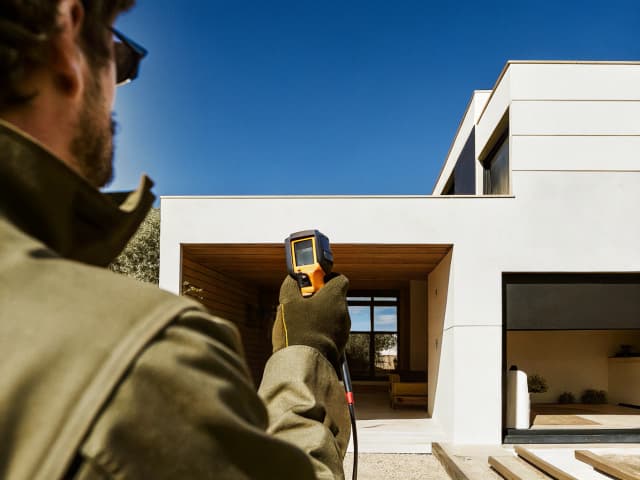
Dwelling units: indoor temperature.
Establishes a state policy that all dwelling units must attain a safe maximum indoor temperature. Directs agencies to consider the policy when revising policies, programs, and grants. Specifies starting January 1, 2027, to consider policy when revising regulations. Declares no immediate numeric standards or enforcement mechanisms.
Dwelling units: indoor temperature.

Establishes a state policy that all dwelling units must attain a safe maximum indoor temperature. Directs agencies to consider the policy when revising policies, programs, and grants. Specifies starting January 1, 2027, to consider policy when revising regulations. Declares no immediate numeric standards or enforcement mechanisms.
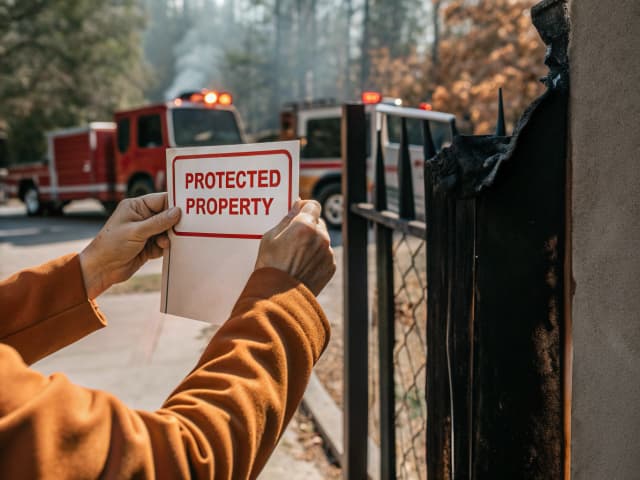
Real property transactions: Counties of Los Angeles and Ventura wildfires: unsolicited offers.
Establishes a temporary ban on unsolicited offers in LA/Ventura wildfire ZIP Codes. Requires signed attestation by buyer and seller and recording with the deed. Allows civil actions with up to $25,000 per violation and a misdemeanor penalty. Operative 30 days after enactment; sunset Jan 1, 2027; contingent on SB 641.
Real property transactions: Counties of Los Angeles and Ventura wildfires: unsolicited offers.

Establishes a temporary ban on unsolicited offers in LA/Ventura wildfire ZIP Codes. Requires signed attestation by buyer and seller and recording with the deed. Allows civil actions with up to $25,000 per violation and a misdemeanor penalty. Operative 30 days after enactment; sunset Jan 1, 2027; contingent on SB 641.

Housing development: density bonuses.
Limits density bonus incentives so the commercial floor area ratio cannot exceed 2.5 times base. Excludes approval of concessions for transient lodging in housing projects. Requires local governments to adopt processing timelines and a completeness list for density bonus apps. Exempts pre-2026 preliminary applications from the density cap and preserves affordability rules.
Housing development: density bonuses.

Limits density bonus incentives so the commercial floor area ratio cannot exceed 2.5 times base. Excludes approval of concessions for transient lodging in housing projects. Requires local governments to adopt processing timelines and a completeness list for density bonus apps. Exempts pre-2026 preliminary applications from the density cap and preserves affordability rules.
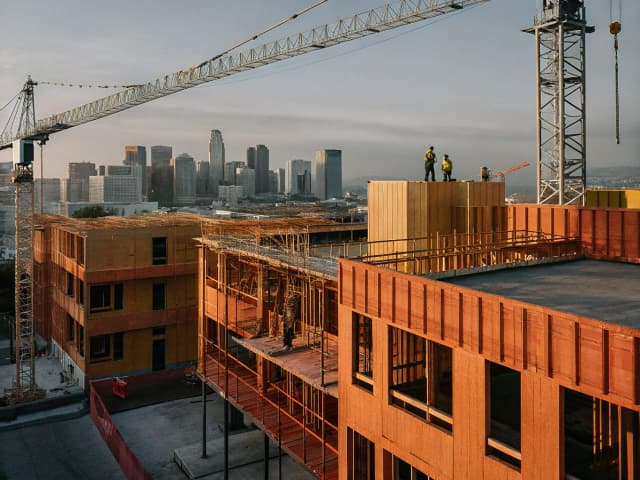
Housing programs: financing.
Requires DSCR of at least 1.15 and 15-year positive cash flow for new debt. Establishes subordination of new debt unless necessary for project feasibility and rehab funding. Expands extracted equity to include reimbursements for predevelopment costs and operating deficits. Triggers a senior regulatory agreement when extracted equity funds are used for enumerated purposes.
Housing programs: financing.

Requires DSCR of at least 1.15 and 15-year positive cash flow for new debt. Establishes subordination of new debt unless necessary for project feasibility and rehab funding. Expands extracted equity to include reimbursements for predevelopment costs and operating deficits. Triggers a senior regulatory agreement when extracted equity funds are used for enumerated purposes.

Housing element: governmental constraints: disclosure statement.
Requires a disclosure of new or tighter governmental constraints in the housing element. Applies to seventh and later revisions, requiring constraints anticipated in the first three years. Adds objective standards for emergency shelters and zoned sites. Encourages multijurisdictional shelter agreements and credits toward needs.
Housing element: governmental constraints: disclosure statement.

Requires a disclosure of new or tighter governmental constraints in the housing element. Applies to seventh and later revisions, requiring constraints anticipated in the first three years. Adds objective standards for emergency shelters and zoned sites. Encourages multijurisdictional shelter agreements and credits toward needs.

Interagency Council on Homelessness.
Requires the homelessness council to coordinate with LGBTQ+ communities for inclusive services. Mandates education, training, and resources to improve culturally competent state programs. Expands data collection to understand LGBTQ+ needs in state homelessness programs. Sets a July 1, 2027 reporting deadline with no direct funding.
Interagency Council on Homelessness.

Requires the homelessness council to coordinate with LGBTQ+ communities for inclusive services. Mandates education, training, and resources to improve culturally competent state programs. Expands data collection to understand LGBTQ+ needs in state homelessness programs. Sets a July 1, 2027 reporting deadline with no direct funding.

Hiring of real property: dwellings: untenantability.
Adds stove and refrigerator to tenantability standards for leases after January 1, 2026. Requires landlords to repair or replace recalled appliances within 30 days of recall notice. Allows mutual agreement for a tenant-provided refrigerator with lease terms and 30-day end notice. Exempts permanent supportive housing, SROs, residential hotels, and housing with shared kitchens.
Hiring of real property: dwellings: untenantability.

Adds stove and refrigerator to tenantability standards for leases after January 1, 2026. Requires landlords to repair or replace recalled appliances within 30 days of recall notice. Allows mutual agreement for a tenant-provided refrigerator with lease terms and 30-day end notice. Exempts permanent supportive housing, SROs, residential hotels, and housing with shared kitchens.
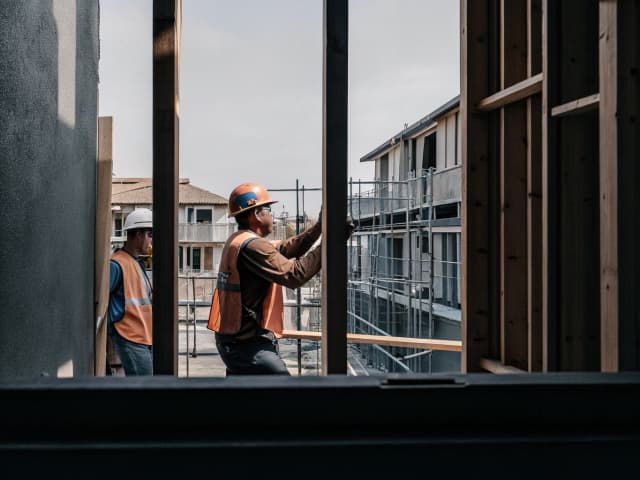
Downtown revitalization and economic recovery financing districts.
Authorizes all cities and counties to form downtown revitalization financing districts. Establishes criteria for non-SF districts: 75% urban perimeter, 20% vacancy, and transit priority area. Permits opt-in before the first building permit; first distribution begins after occupancy; eligibility ends in 2032. Eliminates diversion of tax increments to a district fund and applies state labor standards.
Downtown revitalization and economic recovery financing districts.

Authorizes all cities and counties to form downtown revitalization financing districts. Establishes criteria for non-SF districts: 75% urban perimeter, 20% vacancy, and transit priority area. Permits opt-in before the first building permit; first distribution begins after occupancy; eligibility ends in 2032. Eliminates diversion of tax increments to a district fund and applies state labor standards.

Planning and zoning: housing element: regional housing needs allocation.
Establishes a standardized reporting format for fair housing actions by 2026. Extends regional housing needs planning lead times, including 3-year advance and 38-month windows for some regions. Adds enforceable noncompliance remedies, requiring department findings of deficiencies and fixes. Authorizes formation of subregional shelter allocations with credits among jurisdictions.
Planning and zoning: housing element: regional housing needs allocation.

Establishes a standardized reporting format for fair housing actions by 2026. Extends regional housing needs planning lead times, including 3-year advance and 38-month windows for some regions. Adds enforceable noncompliance remedies, requiring department findings of deficiencies and fixes. Authorizes formation of subregional shelter allocations with credits among jurisdictions.

Regional housing need: determination: consultation with councils of governments.
Establishes formal HCD-COG consultation to set regional housing needs. Imposes phased deadlines: 26–38 months before revisions, depending on year. Requires COGs to provide data on growth, housing, vacancy, overcrowding, homelessness, and costs. Adds UC/CSU enrollment as growth input and ties operative status to sequencing with SB 486.
Regional housing need: determination: consultation with councils of governments.

Establishes formal HCD-COG consultation to set regional housing needs. Imposes phased deadlines: 26–38 months before revisions, depending on year. Requires COGs to provide data on growth, housing, vacancy, overcrowding, homelessness, and costs. Adds UC/CSU enrollment as growth input and ties operative status to sequencing with SB 486.

Housing omnibus.
Allows including just-cause eviction notice in the lease. Requires expiration notices to remain posted until expiration or termination occurs. Requires owners to offer to purchase to qualified entities for up to 12 months. Sets rent caps for 80 percent of units based on TCAC levels for new awards after 2025.
Housing omnibus.

Allows including just-cause eviction notice in the lease. Requires expiration notices to remain posted until expiration or termination occurs. Requires owners to offer to purchase to qualified entities for up to 12 months. Sets rent caps for 80 percent of units based on TCAC levels for new awards after 2025.
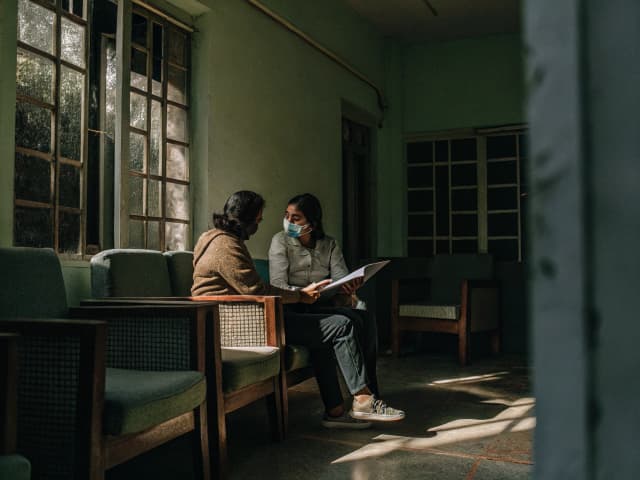
Disaster assistance: tenants, mobilehome parks, and mortgages.
Mandates disaster-related mobilehome park closures include an impact report and relocation plan. Requires remediation of post-disaster dilapidations and declares debris untenantable until health clearance. Returns advance rents within 21 days after termination and refunds evac rents within 10 days after lift. Coordinate mortgage relief during wildfires and allow local agencies to charge costs.
Disaster assistance: tenants, mobilehome parks, and mortgages.

Mandates disaster-related mobilehome park closures include an impact report and relocation plan. Requires remediation of post-disaster dilapidations and declares debris untenantable until health clearance. Returns advance rents within 21 days after termination and refunds evac rents within 10 days after lift. Coordinate mortgage relief during wildfires and allow local agencies to charge costs.

Social Security Tenant Protection Act of 2025.
Adds a temporary Social Security hardship defense in eviction actions. Requires proof benefits were terminated or delayed due to federal action and no fault of tenant. Stays UD and may dismiss or vacate if the tenant pays or plans within 14 days after restoration. Judicial Council must update forms by 2027 and the act sunsets in 2029.
Social Security Tenant Protection Act of 2025.

Adds a temporary Social Security hardship defense in eviction actions. Requires proof benefits were terminated or delayed due to federal action and no fault of tenant. Stays UD and may dismiss or vacate if the tenant pays or plans within 14 days after restoration. Judicial Council must update forms by 2027 and the act sunsets in 2029.